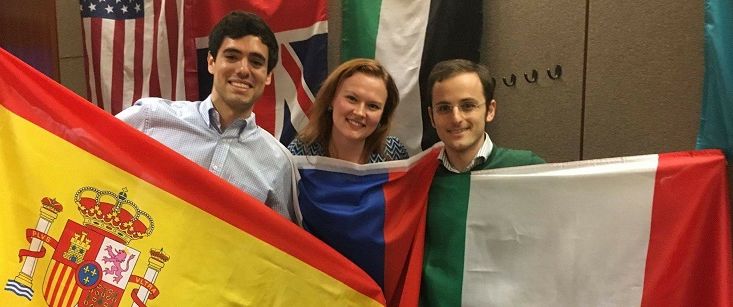An MBA is a hefty investment at a top business school with tuition and two years of foregone salary averaging more than $300,000 at Harvard, Stanford and Wharton before financial aid. But in Europe where one-year programs are more popular, the payback on these MBAs is much quicker thanks to only one year out of the workforce (tuition is lower also).
FORBES surveyed 17,500 MBA graduates around the world this year from the class of 2012 to gauge the return on investment they received by attending business school versus hypothetically not getting a graduate degree. The top 10 one-year international programs produced an average “5-year MBA gain” of $126,000. The leading two-year programs outside the U.S. had a gain of $74,300, while the best U.S. MBA programs had a five-year gain of $73,400 with Wharton School ranked first at $97,100.

The IMD campus in Lausanne
IMD ranks first this year among the one-year MBA programs, up one spot from 2015 in our biennial business school ranking. The school based in Lausanne, Switzerland had a five-year gain of $194,700. IMD caps its annual enrollment at 90 students, allowing for a very individual approach regarding career services. The school works with as many as 70 companies annually to recruit IMD grads.
Students arrive on campus with an average of seven years of work experience. The longer time in the workforce means higher forgone salaries ($81,000 for the Class of 2012). IMD also has the highest cost for a one-year program ($88,000 for the current class) thanks to mandatory fees outside tuition that cover two trips abroad, daily lunch on campus, teaching materials and more.
The payoff is worth it despite the high opportunity cost. The class of 2012 had a median salary of $215,000 five years of out of school, $26,000 more than any other non-U.S. school. IMD grads earned back their investment (forgone salary, tuition) in just 2.3 years on average.


 My MBA at Harvard Business School (HBS) is over, but I will harbor memories from my two years there for a long time. I had some incredible experiences, met inspiring friends and professionals, visited fascinating places and – last but not least – reflected a lot. It has been a transformational experience not only professionally and academically but especially personally. As I embark to go back to what MBA students usually call “real life” (vs. bubble MBA life), these are the seven key lessons I plan to take with me.
My MBA at Harvard Business School (HBS) is over, but I will harbor memories from my two years there for a long time. I had some incredible experiences, met inspiring friends and professionals, visited fascinating places and – last but not least – reflected a lot. It has been a transformational experience not only professionally and academically but especially personally. As I embark to go back to what MBA students usually call “real life” (vs. bubble MBA life), these are the seven key lessons I plan to take with me.